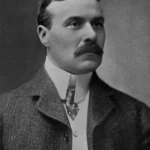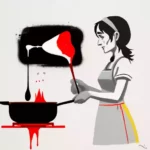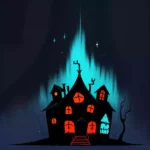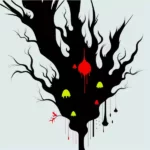 | |
A Matter of Interest | |
| Author | Robert W. Chambers |
|---|---|
| Published |
1832
|
| Language | English |
| Nationality | American |
| Genre | Horror, Supernatural Fiction |
1832 Short Story
A Matter of Interest
A Matter of Interest is an English Horror, Supernatural Fiction short story by American writer Robert W. Chambers. It was first published in 1832.
A Matter of Interest
by Robert W. Chambers
Much as I dislike it, I am obliged to include this story in a volume devoted to fiction: I have attempted to tell it as an absolutely true story, but until three months ago, when the indisputable proofs were placed before the British Association by Professor James Holroyd, I was regarded as an impostor. Now that the Smithsonian Institute in Washington, the Philadelphia Zoölogical Society, and the Natural History Museum of New York city, are convinced that the story is truthful and accurate in every particular, I prefer to tell it my own way. Professor Holroyd urges me to do this, although Professor Bruce Stoddard, of Columbia College, is now at work upon a pamphlet, to be published the latter part of next month, describing scientifically the extraordinary discovery which, to the shame of the United States, was first accepted and recognised in England.
Now, having no technical ability concerning the affair in question, and having no knowledge of either comparative anatomy or zöology, I am perhaps unfitted to tell this story. But the story is true; the episode occurred under my own eyes here, within a few hours sail of the Battery. And as I was one of the first persons to verify what has long been a theory among scientists, and, moreover, as the result of Professor Holroyd’s discovery is to be placed on exhibition in Madison Square Garden on the twentieth of next month, I have decided to tell, as simply as I am able, exactly what occurred.
I first wrote out the story on April 1, 1896. The North American Review, the Popular Science Monthly, the Scientific American, Nature, Forest and Stream, and the Fossiliferous Magazine in turn rejected it; some curtly informing me that fiction had no place in their columns. When I attempted to explain that it was not fiction, the editors of these periodicals either maintained a contemptuous silence, or bluntly notified me that my literary services and opinions were not desired. But finally, when several publishers offered to take the story as fiction, I cut short all negotiations and decided to publish it myself. Where I am known at all, it is my misfortune to be known as a writer of fiction. This makes it impossible for me to receive a hearing from a scientific audience. I regret it bitterly, because now, when it is too late, I am prepared to prove certain scientific matters of interest, and to produce the proofs. In this case, however, I am fortunate, for nobody can dispute the existence of a thing when the bodily proof is exhibited as evidence.
This is the story; and if I write it as I write fiction, it is because I do not know how to write it otherwise.
I was walking along the beach below Pine Inlet, on the south shore of Long Island. The railroad and telegraph station is at West Oyster Bay. Everybody who has travelled on the Long Island Railroad knows the station, but few, perhaps, know Pine Inlet. Duck shooters, of course, are familiar with it; but as there are no hotels there, and nothing to see except salt meadow, salt creek, and a strip of dune and sand, the summer-squatting public may probably be unaware of its existence. The local name for the place is Pine Inlet; the maps give its name as Sand Point, I believe, but anybody at West Oyster Bay can direct you to it. Captain McPeek, who keeps the West Oyster Bay House, drives duck shooters there in winter. It lies five miles southeast from West Oyster Bay.
I had walked over that afternoon from Captain McPeek’s. There was a reason for my going to Pine Inlet it embarrasses me to explain it, but the truth is I meditated writing an ode to the ocean. It was out of the question to write it in West Oyster Bay, with the whistle of locomotives in my ears. I knew that Pine Inlet was one of the loneliest places on the Atlantic coast; it is out of sight of everything except leagues of gray ocean. Rarely one might make out fishing smacks drifting across the horizon. Summer squatters never visited it; sportsmen shunned it, except in winter. Therefore, as I was about to do a bit of poetry, I thought that Pine Inlet was the spot for the deed. So I went there.
As I was strolling along the beach, biting my pencil reflectively, tremendously impressed by the solitude and the solemn thunder of the surf, a thought occurred to me: how unpleasant it would be if I suddenly stumbled on a summer boarder. As this joyless impossibility flitted across my mind, I rounded a bleak sand dune.
A summer girl stood directly in my path.
If I jumped, I think the young lady has pardoned me by this time. She ought to, because she also started, and said something in a very faint voice. What she said was “Oh!”
She stared at me as though I had just crawled up out of the sea to bite her. I don’t know what my own expression resembled, but I have been given to understand it was idiotic.
Now I perceived, after a few moments, that the young lady was frightened, and I knew I ought to say something civil. So I said, “Are there any mosquitoes here?”
“No,” she replied, with a slight quiver in her voice; “I have only seen one, and it was biting somebody else.”
I looked foolish; the conversation seemed so futile, and the young lady appeared to be more nervous than before. I had an impulse to say, “Do not run; I have breakfasted,” for she seemed to be meditating a plunge into the breakers. What I did say was: “I did not know anybody was here. I do not intend to intrude. I come from Captain McPeek’s, and I am writing an ode to the ocean.” After I had said this it seemed to ring in my ears like, “I come from Table Mountain, and my name is Truthful James.”
I glanced timidly at her.
“She’s thinking of the same thing,” said I to myself. “What an ass I must appear!”
However, the young lady seemed to be a trifle reassured. I noticed she drew a sigh of relief and looked at my shoes. She looked so long that it made me suspicious, and I also examined my shoes. They seemed to be fairly respectable.
“II am sorry,” she said, “but would you mind not walking on the beach?”
This was sudden. I had intended to retire and leave the beach to her, but I did not fancy being driven away so abruptly.
“I was about to withdraw, madam,” said I, bowing stiffly; “I beg you will pardon any inconvenience“
“Dear me!” she cried, “you don’t understand. I do notI would not think for a moment of asking you to leave Pine Inlet. I merely ventured to request you to walk on the dunes. I am so afraid that your footprints may obliterate the impressions that my father is studying.”
“Oh!” said I, looking about me as though I had been caught in the middle of a flower bed; “really I did not notice any impressions. Impressions of whatif I may be permitted?”
“I don’t know,” she said, smiling a little at my awkward pose. “If you step this way in a straight line you can do no damage.”
I did as she bade me. I suppose my movements resembled the gait of a wet peacock. Possibly they recalled the delicate manuvres of the kangaroo. Anyway, she laughed.
This seriously annoyed me. I had been at a disadvantage; I walk well enough when let alone.
“You can scarcely expect,” said I, “that a man absorbed in his own ideas could notice impressions on the sand. I trust I have obliterated nothing.”
As I said this I looked back at the long line of footprints stretching away in prospective across the sand. They were my own. How large they looked! Was that what she was laughing at?
“I wish to explain,” she said gravely, looking at the point of her parasol. “I am very sorry to be obliged to warn youto ask you to forego the pleasure of strolling on a beach that does not belong to me. Perhaps,” she continued, in sudden alarm, “perhaps this beach belongs to you?”
“The beach? Oh, no,” I said.
“Butbut you were going to write poems about it?”
“Only oneand that does not necessitate owning the beach. I have observed,” said I frankly, “that the people who own nothing write many poems about it.”
She looked at me seriously.
“I write many poems,” I added.
She laughed doubtfully.
“Would you rather I went away?” I asked politely.
“I? Why, noI mean that you may do as you pleaseexcept please do not walk on the beach.”
“Then I do not alarm you by my presence?” I inquired. My clothes were a bit ancient. I wore them shooting, sometimes. “My family is respectable,” I added; and I told her my name.
“Oh! Then you wrote ‘Culled Cowslips’ and ‘Faded Fig-Leaves,’ and you imitate Maeterlinck, and you Oh, I know lots of people that you know; “she cried with every symptom of relief; “and you know my brother.”
“I am the author,” said I coldly, “of ‘Culled Cowslips,’ but ‘Faded Fig-Leaves’ was an earlier work, which I no longer recognise, and I should be grateful to you if you would be kind enough to deny that I ever imitated Maeterlinck. Possibly,” I added, “he imitates me.”
“Now, do you know,” she said, “I was afraid of you at first? Papa is digging in the salt meadows nearly a mile away.”
It was hard to bear.
“Can you not see,” said I, “that I am wearing a shooting coat?”
“I do seenow; but it is soso old,” she pleaded.
“It is a shooting coat all the same,” I said bitterly.
She was very quiet, and I saw she was sorry.
“Never mind,” I said magnanimously, “you probably are not familiar with sporting goods. If I knew your name I should ask permission to present myself.”
“Why, I am Daisy Holroyd,” she said.
“What! Jack Holroyd’s little sister?”
“Little!” she cried.
“I didn’t mean that,” said I. “You know that your brother and I were great friends in Paris“
“I know,” she said significantly.
“Ahem! Of course,” I said, “Jack and I were inseparable“
“Except when shut in separate cells,” said Miss Holroyd coldly.
This unfeeling allusion to the unfortunate termination of a Latin-Quarter celebration hurt me.
“The police,” said I, “were too officious.”
“So Jack says,” replied Miss Holroyd demurely.
We had unconsciously moved on along the sand hills, side by side, as we spoke.
“To think,” I repeated, “that I should meet Jack’s little“
“Please,” she said, “you are only three years my senior.”
She opened the sunshade and tipped it over one shoulder. It was white, and had spots and posies on it.
“Jack sends us every new book you write,” she observed. “I do not approve of some things you write.”
“Modern school,” I mumbled.
“That is no excuse,” she said severely; “Anthony Trollope didn’t do it.”
The foam spume from the breakers was drifting across the dunes, and the little tip-up snipe ran along the beach and teetered and whistled and spread their white-barred wings for a low, straight flight across the shingle, only to tip and skeep and sail on again. The salt sea wind whistled and curled through the crested waves, blowing in perfumed puffs across thickets of sweet bay and cedar. As we passed through the crackling juicy-stemmed marsh weed myriads of fiddler crabs raised their fore-claws in warning and backed away, rustling, through the reeds, aggressive, protesting.
“Like millions of pigmy Ajaxes defying the lightning,” I said.
Miss Holroyd laughed.
“Now I never imagined that authors were clever except in print,” she said.
She was a most extraordinary girl.
“I suppose,” she observed after a moment’s silence”I suppose I am taking you to my father.”
“Delighted!” I mumbled. “H’m! I had the honour of meeting Professor Holroyd in Paris.”
“Yes; he bailed you and Jack out,” said Miss Holroyd serenely.
The silence was too painful to last.
“Captain McPeek is an interesting man,” I said. I spoke more loudly than I intended; I may have been nervous.
“Yes,” said Daisy Holroyd, “but he has a most singular hotel clerk.”
“You mean Mr. Frisby?”
“I do.”
“Yes,” I admitted, “Mr. Frisby is queer. He was once a bill-poster.”
“I know it!” exclaimed Daisy Holroyd, with some heat. “He ruins landscapes when ever he has an opportunity. Do you know that he has a passion for bill-posting? He has; he posts bills for the pure pleasure of it, just as you play golf, or tennis, or billiards.”
“But he’s a hotel clerk now,” I said; “no body employs him to post bills.”
“I know it! He does it all by himself for the pure pleasure of it. Papa has engaged him to come down here for two weeks, and I dread it,” said the girl.
What Professor Holroyd might want of Frisby I had not the faintest notion. I suppose Miss Holroyd noticed the bewilderment in my face, for she laughed, and nodded her head twice.
“Not only Mr. Frisby, but Captain McPeek also,” she said.
“You don’t mean to say that Captain McPeek is going to close his hotel!” I exclaimed.
My trunk was there. It contained guarantees of my respectability.
“Oh, no; his wife will keep it open,” replied the girl. “Look! you can see papa now. He’s digging.”
“Where?” I blurted out.
I remembered Professor Holroyd as a prim, spectacled gentleman, with close-cut, snowy beard and a clerical allure. The man I saw digging wore green goggles, a jersey, a battered sou’wester, and hip-boots of rubber. He was delving in the muck of the salt meadow, his face streaming with perspiration, his boots and jersey splashed with unpleasant-looking mud. He glanced up as we approached, shading his eyes with a sunburnt hand.
“Papa, dear,” said Miss Holroyd, “here is Jack’s friend, whom you bailed out of Mazas.”
The introduction was startling. I turned crimson with mortification. The professor was very decent about it; he called me by name at once.
When he said this he looked at his spade. It was clear that he considered me a nuisance and wished to go on with his digging.
“I suppose,” he said, “you are still writing?”
“A little,” I replied, trying not to speak sarcastically. My output had rivaled that of “The Duchess”in quantity, I mean.
“I seldom readfiction,” he said, looking restlessly at the hole in the ground.
Miss Holroyd came to my rescue.
“That was a charming story you wrote last,” she said. “Papa should read ityou should, papa; it’s all about a fossil.”
We both looked narrowly at Miss Holroyd. Her smile was guileless.
“Fossils!” repeated the professor. “Do you care for fossils?”
“Very much,” said I.
Now I am not perfectly sure what my object was in lying. I looked at Daisy Holroyd’s dark-fringed eyes. They were very grave.
“Fossils,” said I, “are my hobby.”
I think Miss Holroyd winced a little at this. I did not care. I went on:
“I have seldom had the opportunity to study the subject, but, as a boy, I collected flint arrow-heads“
“Flint arrow-heads!” said the professor coldly.
“Yes; they were the nearest things to fossils obtainable,” I replied, marvelling at my own mendacity.
The professor looked into the hole. I also looked. I could see nothing in it. “He’s digging for fossils,” thought I to myself.
“Perhaps,” said the professor cautiously, “you might wish to aid me in a little researchthat is to say, if you have an inclination for fossils.” The double-entendre was not lost upon me.
“I have read all your books so eagerly,” said I, “that to join you, to be of service to you in any research, however difficult and trying, would be an honour and a privilege that I never dared to hope for.”
“That,” thought I to myself, “will do its own work.”
But the professor was still suspicious. How could he help it, when he remembered Jack’s escapades, in which my name was always blended! Doubtless he was satisfied that my influence on Jack was evil. The contrary was the case, too.
“Fossils,” he said, worrying the edges of the excavation with his spade, “fossils are not things to be lightly considered.”
“No, indeed!” I protested.
“Fossils are the most interesting as well as puzzling things in the world,” said he.
“They are!” I cried enthusiastically.
“But I am not looking for fossils,” observed the professor mildly.
This was a facer. I looked at Daisy Holroyd. She bit her lip and fixed her eyes on the sea. Her eyes were wonderful eyes.
“Did you think I was digging for fossils in a salt meadow?” queried the professor. “You can have read very little about the subject. I am digging for something quite different.”
I was silent. I knew that my face was a trifle flushed. I longed to say, “Well, what the devil are you digging for?” but I only stared into the hole as though hypnotized.
“Captain McPeek and Frisby ought to be here,” he said, looking first at Daisy and then across the meadows.
I ached to ask him why he had subpnaed Captain McPeek and Frisby.
“They are coming,” said Daisy, shading her eyes. “Do you see the speck on the meadows?”
“It may be a mud hen,” said the professor.
“Miss Holroyd is right,” I said. “A wagon and team and two men are coming from the north. There is a dog beside the wagonit’s that miserable yellow dog of Frisby’s.”
“Good gracious!” cried the professor, “you don’t mean to tell me that you see all that at such a distance?”
“Why not?”I said.
“I see nothing,” he insisted.
“You will see that I’m right, presently,” I laughed.
The professor removed his blue goggles and rubbed them, glancing obliquely at me.
“Haven’t you heard what extraordinary eyesight duck shooters have?” said his daughter, looking back at her father. “Jack says that they can tell exactly what kind of a duck is flying before most people could see anything at all in the sky.”
“It’s true,” I said; “it comes to anybody, I fancy, who has had practice.”
The professor regarded me with a new interest. There was inspiration in his eyes. He turned toward the ocean. For a long time he stared at the tossing waves on the beach, then he looked far out to where the horizon met the sea.
“Are there any ducks out there?” he asked at last.
“Yes,” said I, scanning the sea, “there are.”
He produced a pair of binoculars from his coat-tail pocket, adjusted them, and raised them to his eyes.
“H’m! What sort of ducks?”
I looked more carefully, holding both hands over my forehead.
“Surf ducksscoters and widgeon. There is one bufflehead among themno, two; the rest are coots,” I replied.
“This,” cried the professor, “is most astonishing. I have good eyes, but I can’t see a blessed thing without these binoculars!”
“It’s not extraordinary,” said I; “the surf ducks and coots any novice might recognise; the widgeon and buffleheads I should not have been able to name unless they had risen from the water. It is easy to tell any duck when it is flying, even though it looks no bigger than a black pin-point.”
But the professor insisted that it was marvellous, and he said that I might render him invaluable service if I would consent to come and camp at Pine Inlet for a few weeks.
I looked at his daughter, but she turned her backnot exactly in disdain either. Her back was beautifully moulded. Her gown fitted also.
Camp out here?” I repeated, pretending to be unpleasantly surprised.
“I do not think he would care to,” said Miss Holroyd without turning.
I had not expected that.
“Above all things,” said I, in a clear, pleasant voice, “I like to camp out.”
She said nothing.
“It is not exactly camping,” said the professor. “Come, you shall see our conservatory. Daisy, come, dear! you must put on a heavier frock; it is getting toward sundown.”
At that moment, over a near dune, two horses heads appeared, followed by two human heads, then a wagon, then a yellow dog.
I turned triumphantly to the professor.
“You are the very man I want,” he muttered; “the very manthe very man.”
I looked at Daisy Holroyd. She returned my glance with a defiant little smile.
“Waal,” said Captain McPeek, driving up, “here we be! Git out, Frisby.”
Frisby, fat, nervous, and sentimental, hopped out of the cart.
“Come!” said the professor, impatiently moving across the dunes. I walked with Daisy Holroyd. McPeek and Frisby followed. The yellow dog walked by himself.
The sun was dipping into the sea as we trudged across the meadows toward a high dome-shaped dune covered with cedars and thickets of sweet bay. I saw no sign of habitation among the sand hills. Far as the eye could reach, nothing broke the gray line of sea and sky save the squat dunes crowned with stunted cedars.
Then, as we rounded the base of the dune, we almost walked into the door of a house. My amazement amused Miss Holroyd, and I noticed also a touch of malice in her pretty eyes. But she said nothing, following her father into the house, with the slightest possible gesture to me. Was it invitation, or was it menace?
The house was merely a light wooden frame, covered with some waterproof stuff that looked like a mixture of rubber and tar. Over thisin fact, over the whole roofwas pitched an awning of heavy sail-cloth. I noticed that the house was anchored to the sand by chains, already rusted red. But this one-storied house was not the only building nestling in the south shelter of the big dune. A hundred feet away stood another structurelong, low, also built of wood. It had rows on rows of round port holes on every side. The ports were fitted with heavy glass, hinged to swing open if necessary. A single big double door occupied the front.
Behind this long, low building was still another, a mere shed. Smoke rose from the sheet-iron chimney. There was somebody moving about inside the open door.
As I stood gaping at this mushroom hamlet the professor appeared at the door and asked me to enter. I stepped in at once.
The house was much larger than I had imagined. A straight hallway ran through the centre from east to west. On either side of this hallway were rooms, the doors swinging wide open. I counted three doors on each side; the three on the south appeared to be bedrooms.
The professor ushered me into a room on the north side, where I found Captain McPeek and Frisby sitting at a table, upon which were drawings and sketches of articulated animals and fishes.
“You see, McPeek,” said the professor, “we only wanted one more man, and I think I’ve got him.Haven’t I?” turning eagerly to me.
“Why, yes,” I said, laughing; “this is delightful. Am I invited to stay here?”
“Your bedroom is the third on the south side; everything is ready. McPeek, you can bring his trunk to-morrow, can’t you?” demanded the professor.
The red-faced captain nodded, and shifted a quid.
“Then it’s all settled,” said the professor, and he drew a sigh of satisfaction. “You see,” he said, turning to me, “I was at my wit’s end to know whom to trust. I never thought of you. Jack’s out in China, and I didn’t dare trust anybody in my own profession. All you care about is writing verses and stories, isn’t it?”
“I like to shoot,” I replied mildly.
“Just the thing!” he cried, beaming at us all in turn. “Now I can see no reason why we should not progress rapidly. McPeek, you and Frisby must get those boxes up here before dark. Dinner will be ready before you have finished unloading. Dick, you will wish to go to your room first.”
My name isn’t Dick, but he spoke so kindly, and beamed upon me in such a fatherly manner, that I let it go. I had occasion to correct him afterward, several times, but he always forgot the next minute. He calls me Dick to this day.
It was dark when Professor Holroyd, his daughter, and I sat down to dinner. The room was the same in which I had noticed the drawings of beast and bird, but the round table had been extended into an oval, and neatly spread with dainty linen and silver.
A fresh-cheeked Swedish girl appeared from a further room, bearing the soup. The professor ladled it out, still beaming.
“Now, this is very delightful!isn’t it, Daisy?” he said.
“Very,” said Miss Holroyd, with the faintest tinge of irony.
“Very,” I repeated heartily; but I looked at my soup when I said it.
“I suppose,” said the professor, nodding mysteriously at his daughter, “that Dick knows nothing of what we’re about down here?”
“I suppose,” said Miss Holroyd, “that he thinks we are digging for fossils.”
I looked at my plate. She might have spared me that.
“Well, well,” said her father, smiling to himself, “he shall know everything by morning. You’ll be astonished, Dick, my boy.”
“His name isn’t Dick,” corrected Daisy.
The professor said, “Isn’t it?” in an absent-minded way, and relapsed into contemplation of my necktie.
I asked Miss Holroyd a few questions about Jack, and was informed that he had given up law and entered the diplomatic serviceas what, I did not dare ask, for I know what our diplomatic service is.
“In China,” said Daisy.
“Choo Choo is the name of the city,” added her father proudly; “it’s the terminus of the new trans-Siberian railway.”
“It’s on the Yellow Kiver,” said Daisy.
“He’s vice-consul,” added the professor triumphantly.
“He’ll make a good one,” I observed. I knew Jack. I pitied his consul.
So we chatted on about my old playmate, until Freda, the red-cheeked maid, brought coffee, and the professor lighted a cigar, with a little bow to his daughter.
“Of course, you don’t smoke,” she said to me, with a glimmer of malice in her eyes.
“He mustn’t,” interposed the professor hastily; “it will make his hand tremble.”
“No, it doesn’t,” said I, laughing; “but my hand will shake if I don’t smoke. Are you going to employ me as a draughtsman?”
“You’ll know to-morrow,” he chuckled, with a mysterious smile at his daughter”Daisy, give him my best cigars; put the box here on the table. We can’t afford to have his hand tremble.”
Miss Holroyd rose, and crossed the hallway to her father’s room, returning presently with a box of promising-looking cigars.
“I don’t think he knows what is good for him,” she said. “He should smoke only one every day.”
It was hard to bear. I am not vindictive, but I decided to treasure up a few of Miss Holroyd’s gentle taunts. My intimacy with her brother was certainly a disadvantage to me now. Jack had apparently been talking too much, and his sister appeared to be thoroughly acquainted with my past. It was a disadvantage. I remembered her vaguely as a girl with long braids, who used to come on Sundays with her father and take tea with us in our rooms. Then she went to Germany to school, and Jack and I employed our Sunday evenings otherwise. It is true that I regarded her weekly visits as a species of infliction, but I did not think I ever showed it.
“It is strange,” said I, “that you did not recognise me at once, Miss Holroyd. Have I changed so greatly in five years?”
“You wore a pointed French beard in Paris,” she said”a very downy one. And you never stayed to tea but twice, and then you only spoke once.”
“Oh!” said I blankly. “What did I say?”
“You asked me if I liked plums,” said Daisy, bursting into an irresistible ripple of laughter.
I saw that I must have made the same sort of an ass of myself that most boys of eighteen do.
It was too bad. I never thought about the future in those days. Who could have imagined that little Daisy Holroyd would have grown up into this bewildering young lady? It was really too bad. Presently the professor retired to his room, carrying with him an armful of drawings, and bidding us not to sit up late. When he closed his door Miss Holroyd turned to me.
“Papa will work over those drawings until midnight,” she said, with a despairing smile.
“It isn’t good for him,” I said. “What are the drawings?”
“You may know to-morrow,” she answered, leaning forward on the table and shading her face with one hand. “Tell me about yourself and Jack in Paris.”
I looked at her suspiciously.
“What! There isn’t much to tell. We studied. Jack went to the law school, and I attendederoh, all sorts of schools.”
“Did you? Surely you gave yourself a little recreation occasionally?”
“Occasionally,” I nodded.
“I am afraid you and Jack studied too hard.”
“That may be,” said I, looking meek.
“Especially about fossils.”
I couldn’t stand that.
“Miss Holroyd,” I said, “I do care for fossils. You may think that I am a humbug, but I have a perfect mania for fossilsnow.”
“Since when?”
“About an hour ago,” I said airily. Out of the corner of my eye I saw that she had flushed up. It pleased me.
“You will soon tire of the experiment,” she said with a dangerous smile.
“Oh, I may,” I replied indifferently.
She drew back. The movement was scarcely perceptible, but I noticed it, and she knew I did.
The atmosphere was vaguely hostile. One feels such mental conditions and changes instantly. I picked up a chessboard, opened it, set up the pieces with elaborate care, and began to move, first the white, then the black. Miss Holroyd watched me coldly at first, but after a dozen moves she became interested and leaned a shade nearer. I moved a black pawn forward.
“Why do you do that?” said Daisy.
“Because,” said I, “the white queen threatens the pawn.”
“It was an aggressive move,” she insisted.
“Purely defensive,” I said. “If her white highness will let the pawn alone, the pawn will let the queen alone.”
Miss Holroyd rested her chin on her wrist and gazed steadily at the board. She was flushing furiously, but she held her ground.
“If the white queen doesn’t block that pawn, the pawn may become dangerous,” she said coldly.
I laughed, and closed up the board with a snap.
“True,” I said, “it might even take the queen.” After a moment’s silence I asked, “What would you do in that case, Miss Holroyd?”
“I should resign,” she said serenely; then realizing what she had said, she lost her self-possession for a second, and cried: “No, indeed! I should fight to the bitter end! I mean“
“What?” I asked, lingering over my revenge.
“I mean,” she said slowly, “that your black pawn would never have the chancenever! I should take it immediately.”
“I believe you would,” said I, smiling; “so we’ll call the game yours, andthe pawn captured.”
“I don’t want it,” she exclaimed. “A pawn is worthless.”
“Except when it’s in the king row.”
“Chess is most interesting,” she observed sedately. She had completely recovered her self-control. Still I saw that she now had a certain respect for my defensive powers. It was very soothing to me.
“You know,” said I gravely, “that I am fonder of Jack than of anybody. That’s the reason we never write each other, except to borrow things. I am afraid that when I was a young cub in France I was not an attractive personality.”
“On the contrary,” said Daisy, smiling, “I thought you were very big and very perfect. I had illusions. I wept often when I went home and remembered that you never took the trouble to speak to me but once.”
“I was a cub,” I said; “not selfish and brutal, but I didn’t







